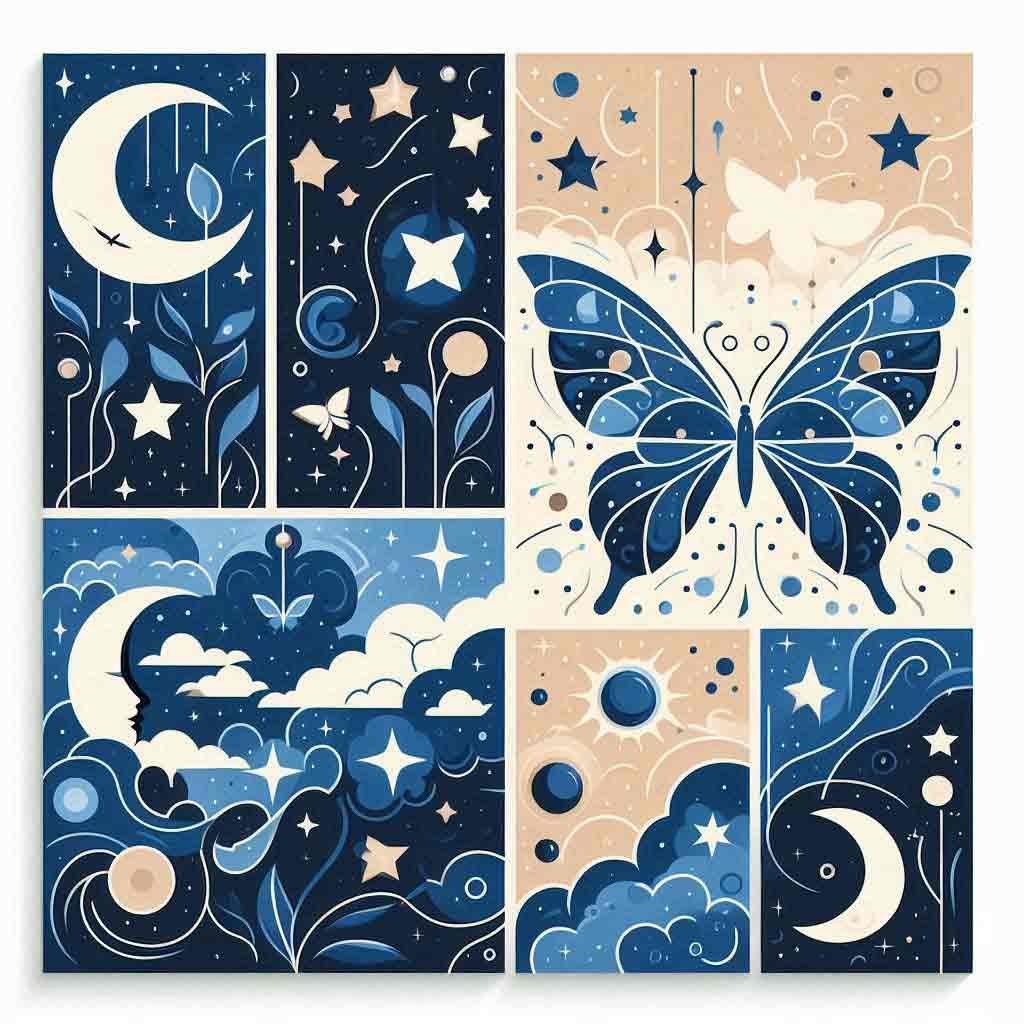
A poem can be many things, expressing ideas in very different ways. But how do we describe the poem itself? Which words can we use? Here are 47 adjectives that may be employed to convey the specific qualities and characteristics of poems.
Poetry can evoke a wide range of emotions and express ideas in myriad ways. To better describe and analyze poems, it’s helpful to have a rich vocabulary. Here’s an expanded and categorized list of adjectives to describe various aspects of poetry.
The adjectives are grouped into 5 categories, depending on which aspect of the lyrical text one wishes to highlight.
Aesthetics—The Beauty and Artistic Quality
- aesthetic: Highlights the beauty or artistic quality of the poem.
- graceful: Describes elegance in language or structure.
- elegant: Refined and graceful in style and form.
- delicate: Light and fragile, often subtle in its expression.
- harmonious: A pleasing balance between elements of the poem.
- majestic: Grand and awe-inspiring, often in scope or impact.
- sublime: Inspires a sense of awe or wonder, often evoking the divine.
Emotion—Feelings and Moods
- touching: Evokes strong emotions, resonating with the reader’s heart.
- poignant: Leaves a deep emotional impact, often with sadness or reflection.
- melancholic: Reflects sadness, introspection, or longing.
- nostalgic: Evokes a longing for the past, or memories.
- passionate: Full of intense emotion and fervor.
- wistful: A gentle yearning or sadness, often tinged with regret.
- sentimental: Appeals to affection, often in a warm or nostalgic way.
- sorrowful: Conveys deep sadness or grief, moving the reader.
- intimate: Creates a feeling of personal closeness, as if speaking directly to the reader.
Cognition—Thought-Provoking and Reflective
- profound: Communicates deep or significant ideas, often making the reader think.
- philosophical: Engages with questions about existence, life, and the universe.
- introspective: Encourages reflection or self-examination.
- reflective: Prompts thoughtful meditation on emotions or life.
- metaphorical: Uses metaphor to convey deeper, symbolic meanings.
- symbolic: Represents broader ideas or concepts through imagery or metaphor.
- enigmatic: Mysterious or open to interpretation, inviting reflection.
- intricate: Complex in meaning or structure, requiring close attention.
- subtle: Contains delicate or hidden meanings, often requiring careful reading.
Sensory—Sensory Perception and Imagery
- vivid: Creates clear, lively images in the mind of the reader.
- evocative: Strongly brings to mind images, memories, or feelings.
- dreamlike: Has a surreal, almost otherworldly quality, like drifting through a dream.
- ethereal: Light, delicate, and almost otherworldly in nature.
- haunting: Leaves a lingering, unforgettable impression, often mysterious or eerie.
- mystical: Spiritual or otherworldly, beyond the realm of the physical.
- whimsical: Playful, with a light, unpredictable, or fanciful quality.
- captivating: Grabs the reader’s attention and holds it with its charm or allure.
- romanticized: Presents an idealized version of love, beauty, or life.
- lyrical: Expresses deep emotion in a musical or rhythmical way.
- serene: Calm, peaceful, and soothing.
- transcendent: Goes beyond ordinary experience, offering a glimpse of the sublime or divine.
Other Interesting Aspects
- expressive: Conveys emotions, thoughts, or feelings clearly and powerfully.
- emotive: Makes the reader feel deeply, evoking strong emotional responses.
- bold: Confident and striking in its themes or expression.
- compelling: Powerfully draws the reader in, often through its intensity or intrigue.
- imaginative: Shows creativity, offering unique or fantastical ideas.
- romantic: Associated with love, idealism, or passion.
- timeless: Relevant across all periods, with universal themes or qualities.
- captivating: Grabs and holds the reader’s attention with its charm or power.
- meditative: Encourages peaceful, thoughtful reflection.
- eloquent: Communicates ideas beautifully and persuasively.
When analyzing or discussing poetry, consider combining adjectives from different categories to provide a comprehensive description.
